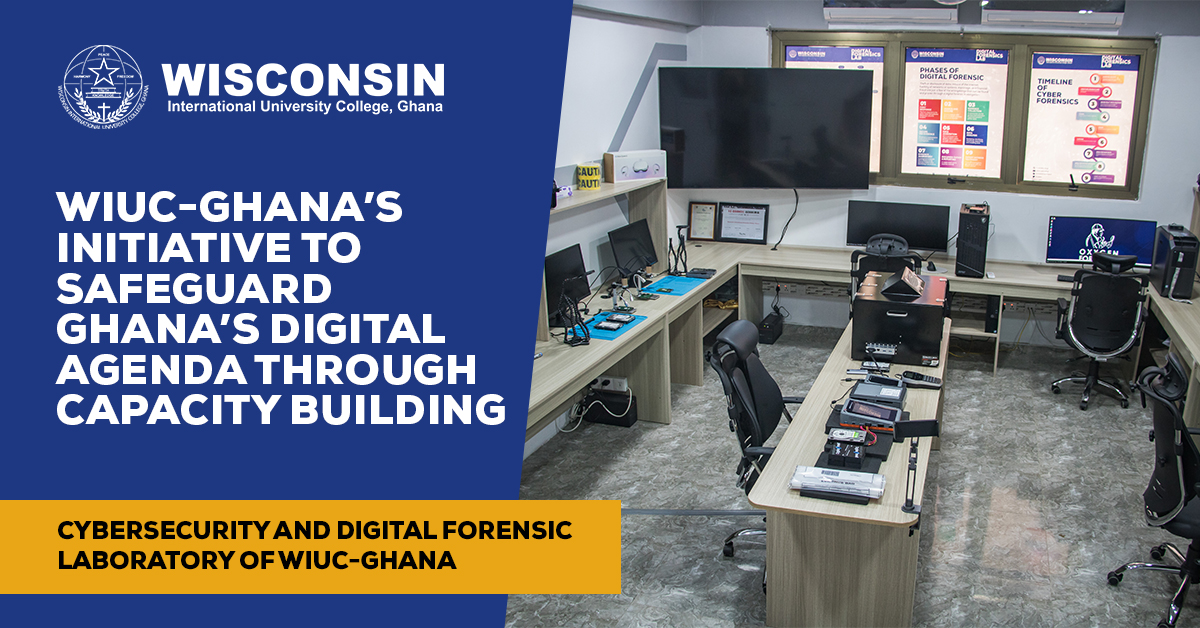In recent years, the advent of digital devices has significantly transformed various aspects of our lives, leading to their widespread proliferation. The complexities arising from our extensive use of these devices, such as networks, wireless networks, cloud computing, and the Internet of Things (IoT), have not only increased our dependence on technology but have also made us more vulnerable to cybercrime. This vulnerability underscores the urgent need for robust cybersecurity measures.
Recognizing this trend, Wisconsin International University College, Ghana has noted that Ghana is actively pursuing a digitalization drive, ensuring that both governmental and private sector processes are increasingly going digital. This digital transformation, while beneficial, also exposes the country to heightened risks of cybercrime, potentially undermining the digitalization efforts. To support this initiative and address these challenges, Wisconsin International University College, Ghana is introducing three new one-year master’s programs: a MSc Cybersecurity and Digital Forensics, MSc Information Technology and Msc Business Computing.
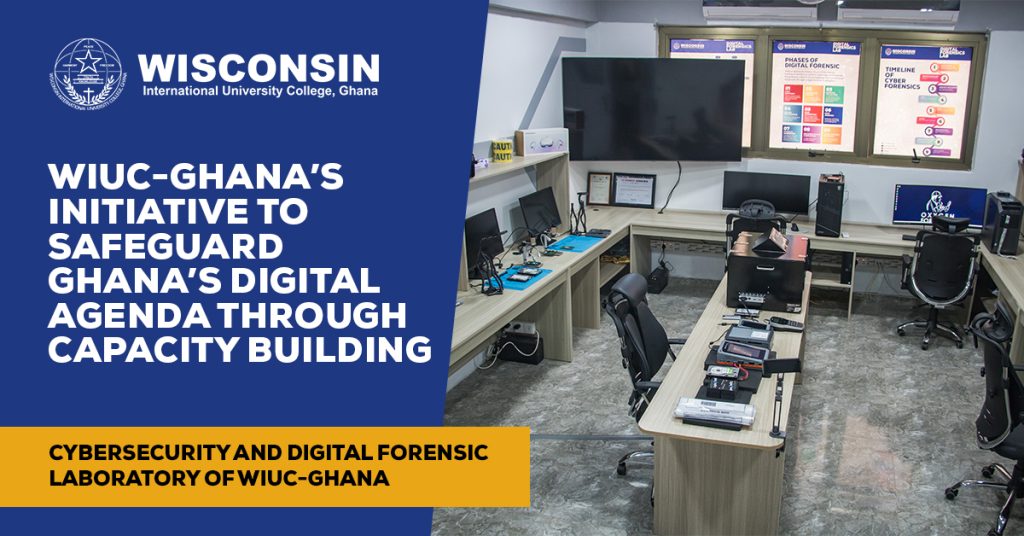
The MSc Cybersecurity and Digital Forensics aims to prepare students to tackle the setbacks associated with the digitalization drive by equipping them with the skills needed to combat cyber threats. The MSc Information Technology focuses on advancing the digitalization agenda by providing comprehensive training in IT infrastructure and management.
As a result of these programs, the university has established four state-of-the-art labs:
1. Training Digital Forensics Lab
This lab, equipped with 32 workstations, is dedicated to providing hands-on training for students. It addresses a critical gap in the current educational landscape in Ghana, where many universities do not provide practical training in cybersecurity. By offering this hands-on experience, the university aims to better prepare students for the demands of the industry. This lab is specifically designed for practical purposes, allowing students to engage in various aspects of digital forensics, including drone forensics, IoT forensics, email forensics, and mobile phone forensics, ensuring comprehensive training before graduation.
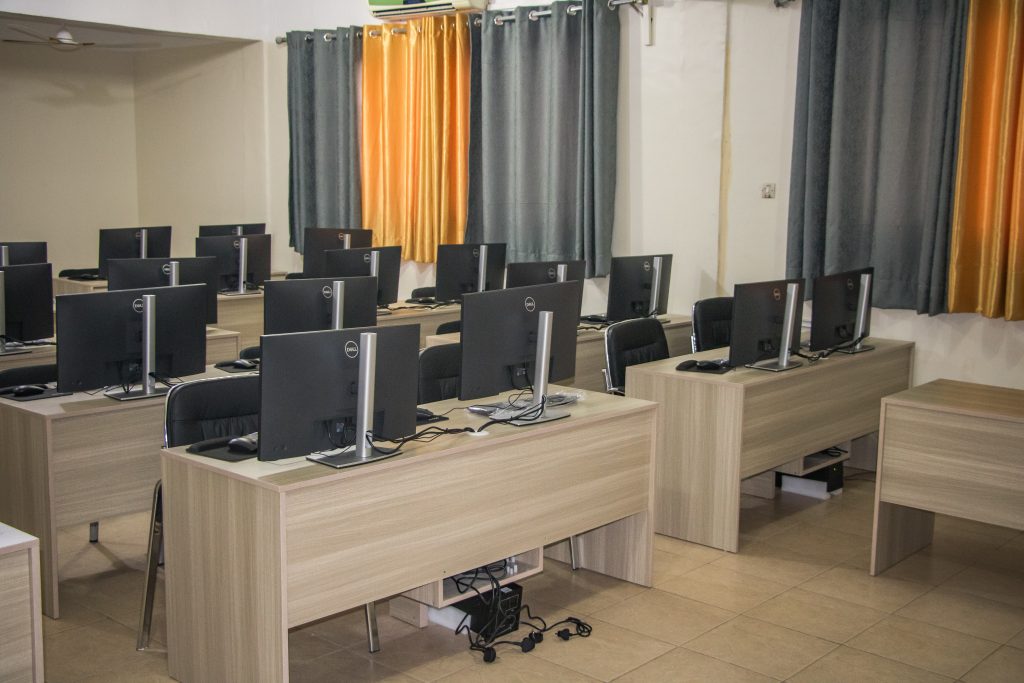
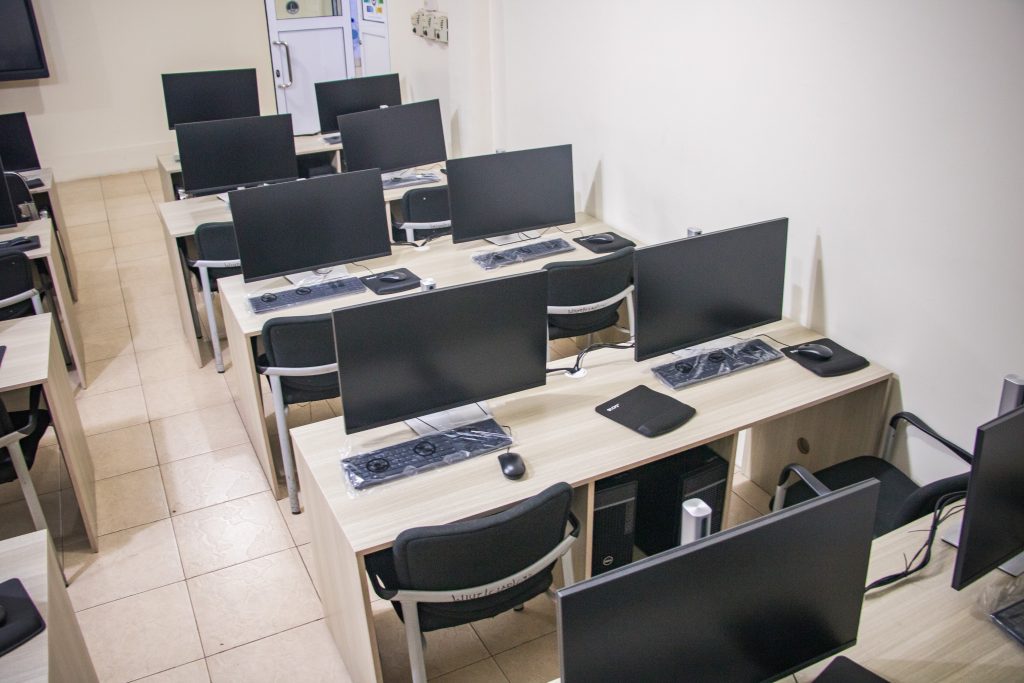
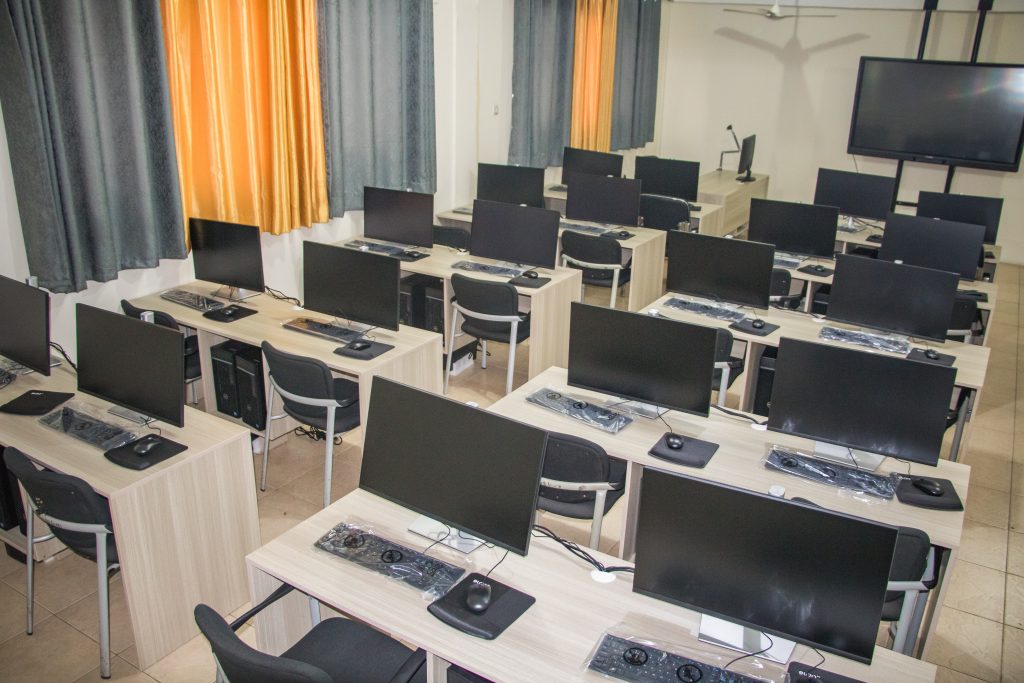
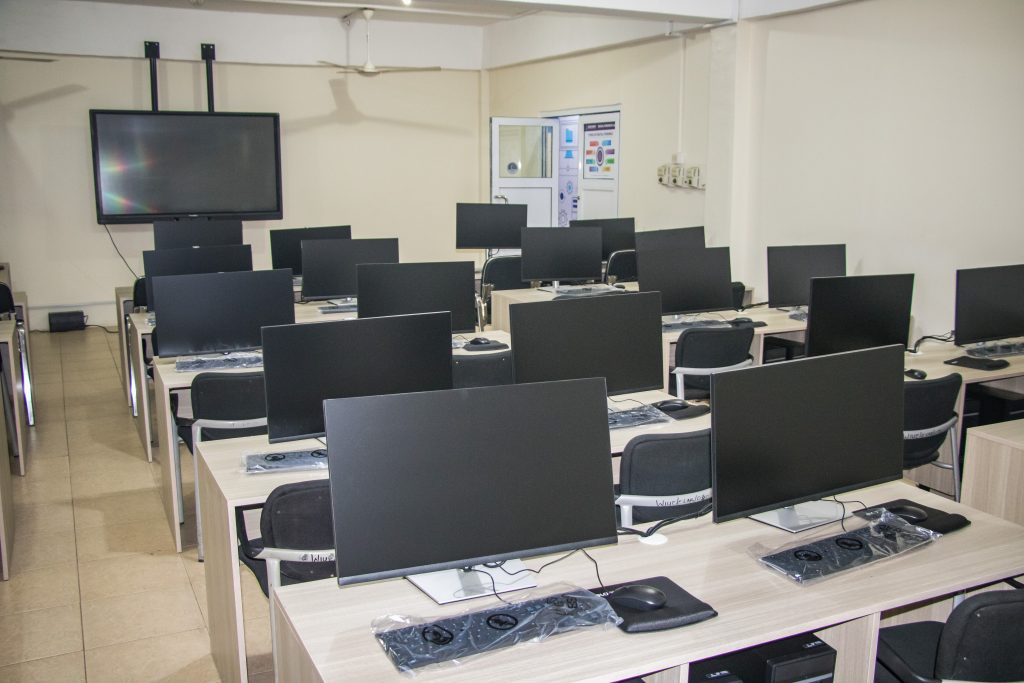
2. Commercially Graded Digital Forensics Lab
This lab is designed to give students a feel of a state-of-the-art facility that meets commercial standards. It is intended to expose students to the standard operating procedures and setups required in the field. The lab is equipped with a variety of tools and technologies that are used in professional settings, and it is managed by lab managers to simulate a real-world environment. This exposure helps students understand the standards and protocols they will encounter in their professional careers, ensuring they are well-prepared for the industry.
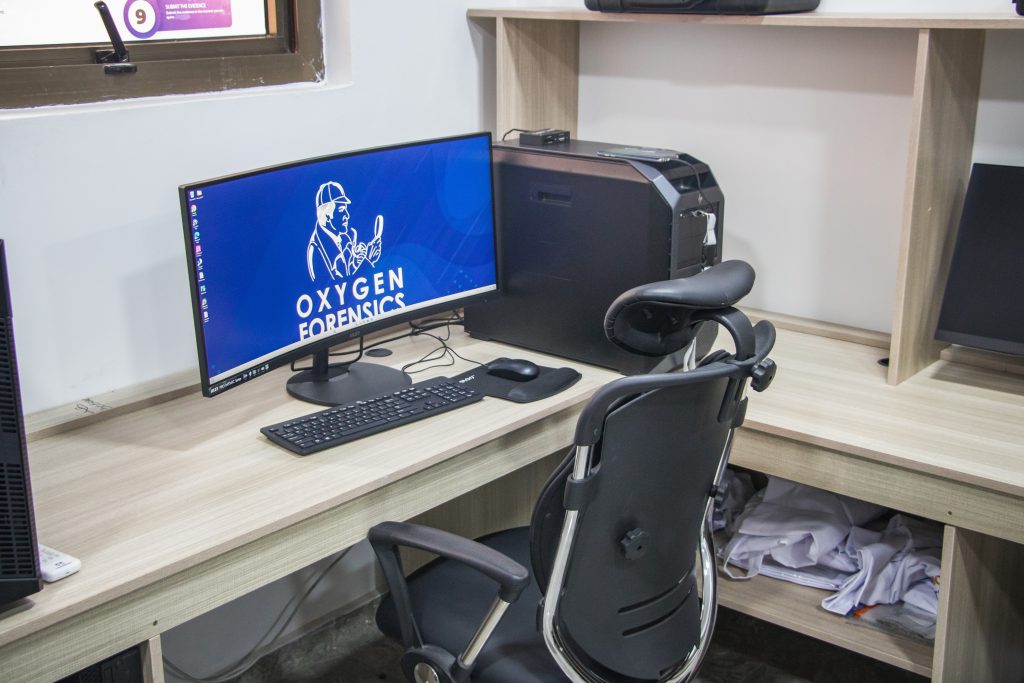
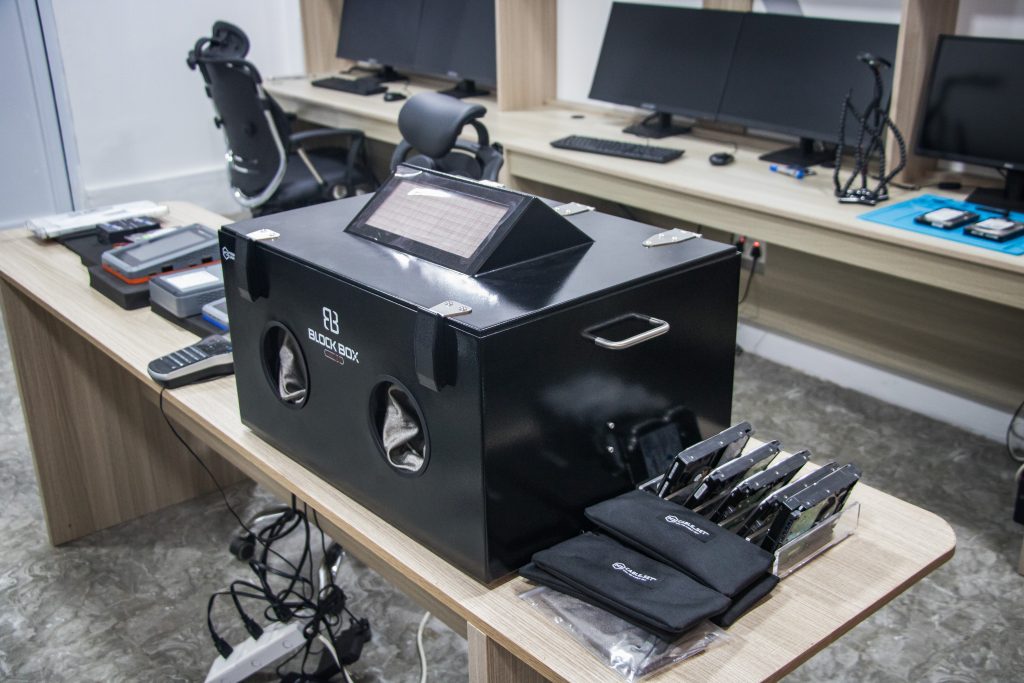
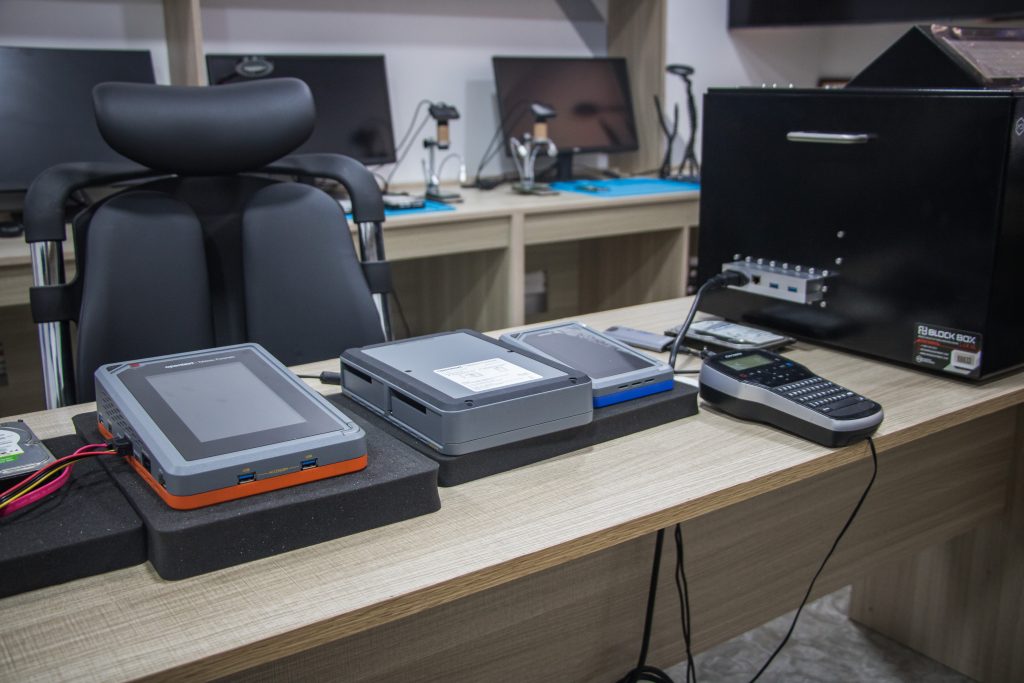
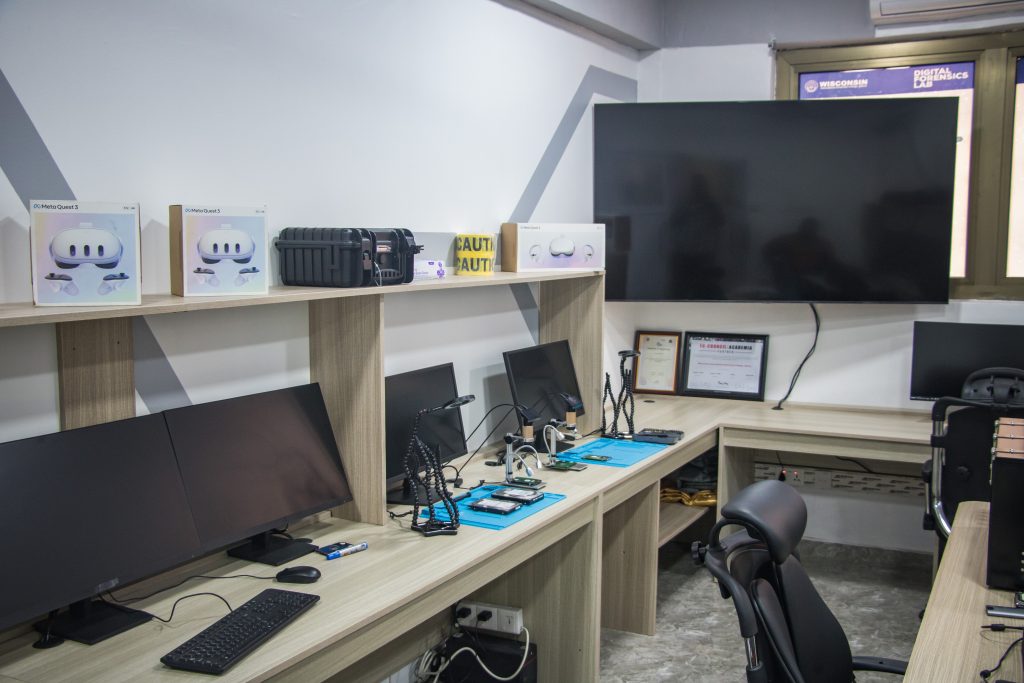
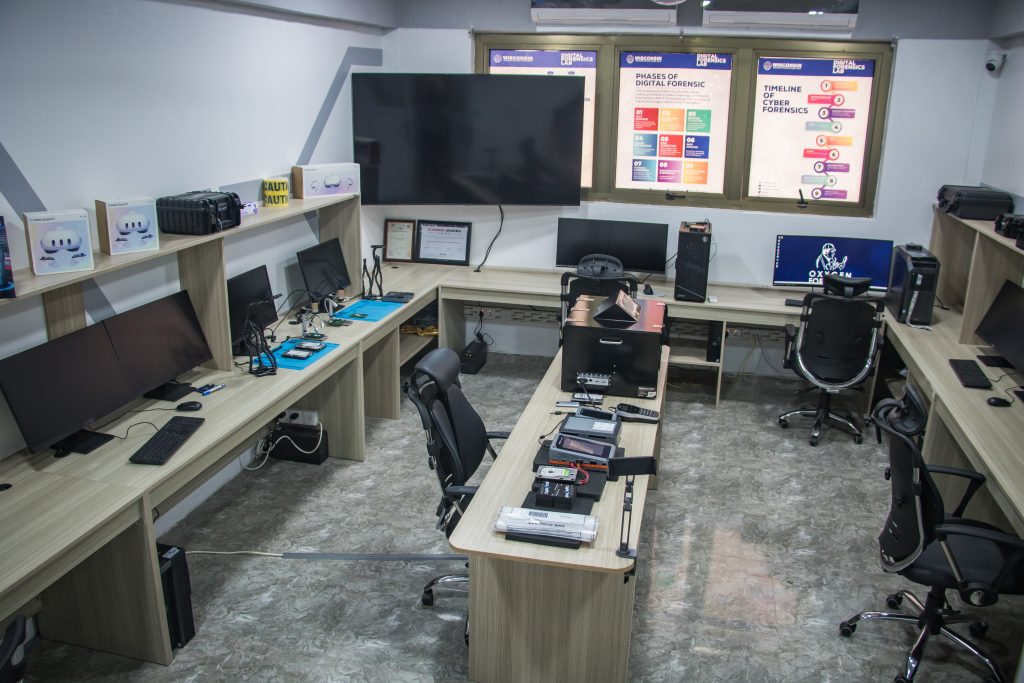
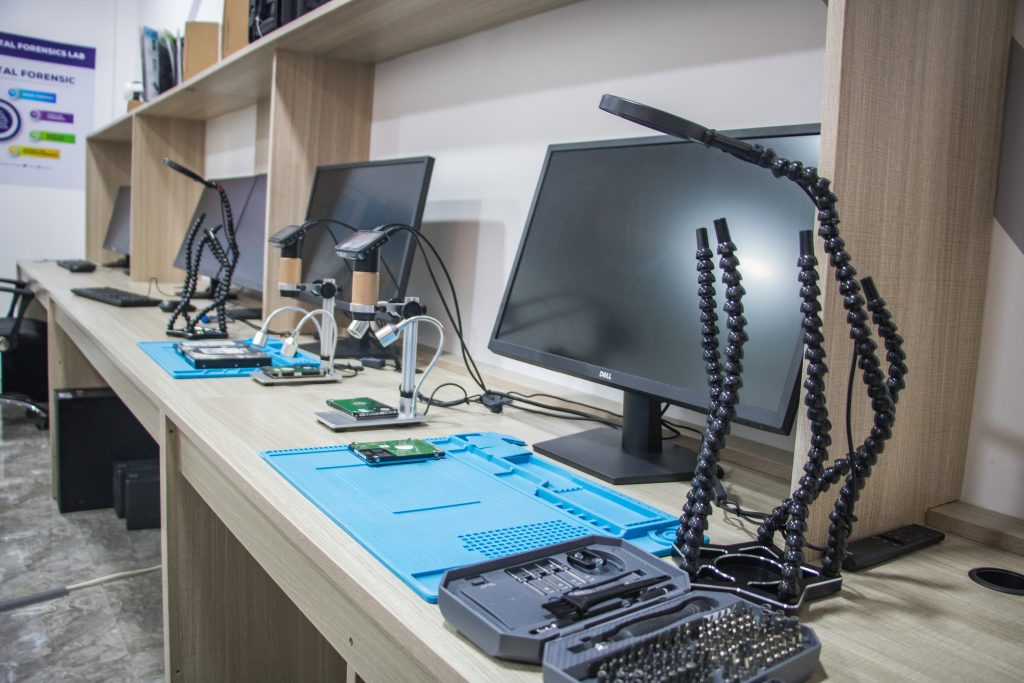
3. AI Lab
Recognizing the pivotal role of AI in modern cybersecurity, this lab focuses on the development of AI software and the integration of AI into cybersecurity tools. These AI-driven tools have proven to be more effective in combating cyber threats. The AI lab is integral to advancing the capabilities of cybersecurity measures and ensuring that students are proficient in using cutting-edge technology to address security challenges.
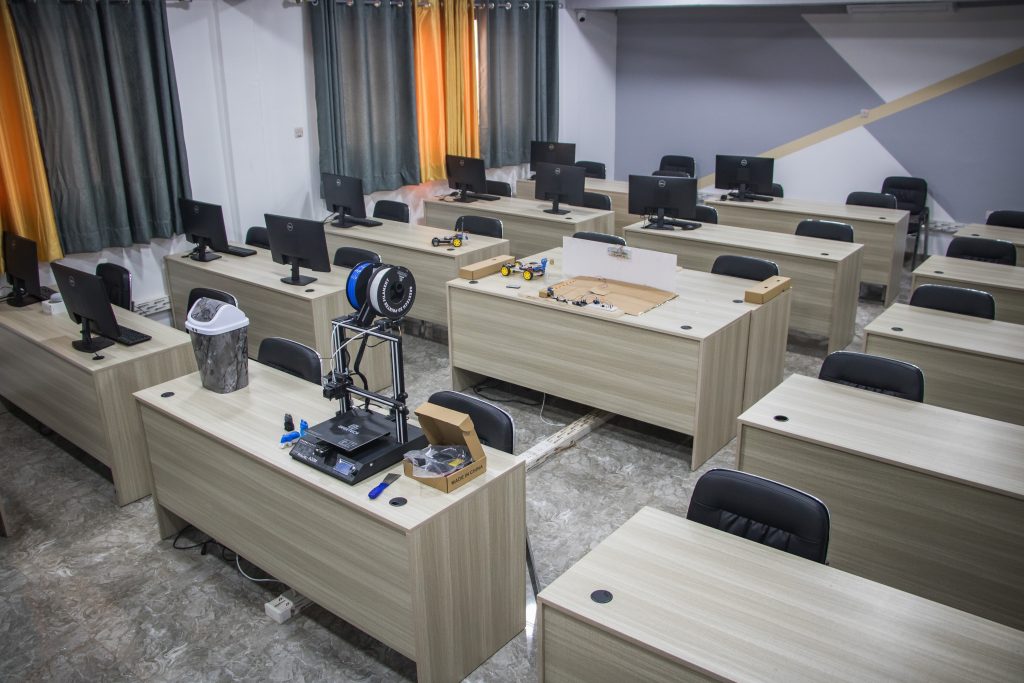

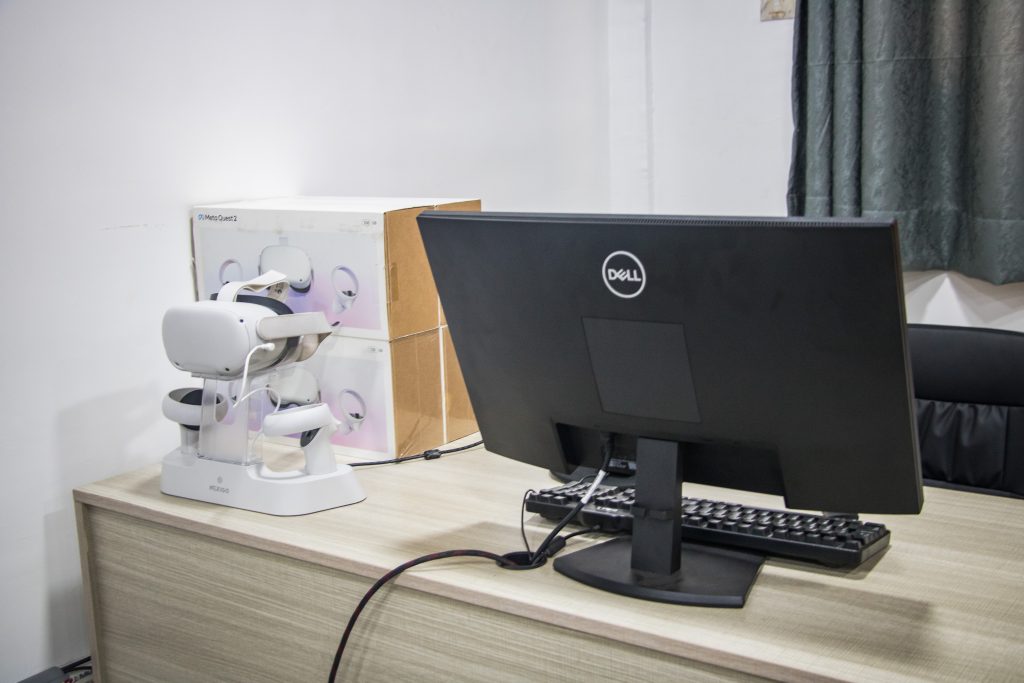

4. IT Lab
This lab has been set up with cybersecurity tools incorporated into it, ensuring comprehensive training for our students to effectively address digitalization challenges. The IT lab supports the broader curriculum and provides students with the necessary skills to manage and secure IT infrastructures.
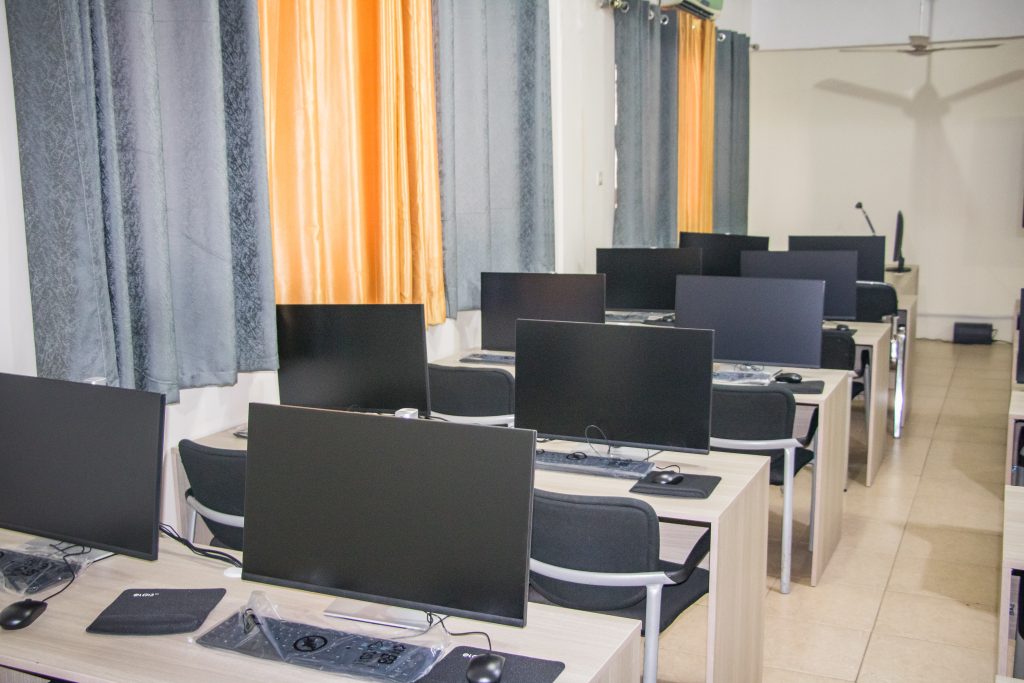
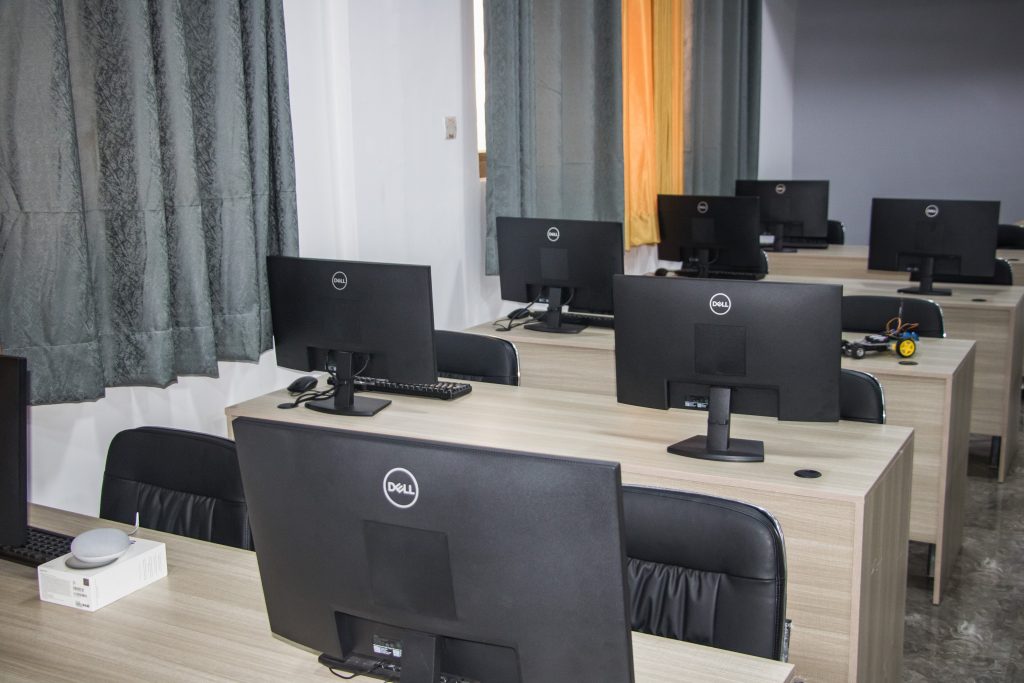
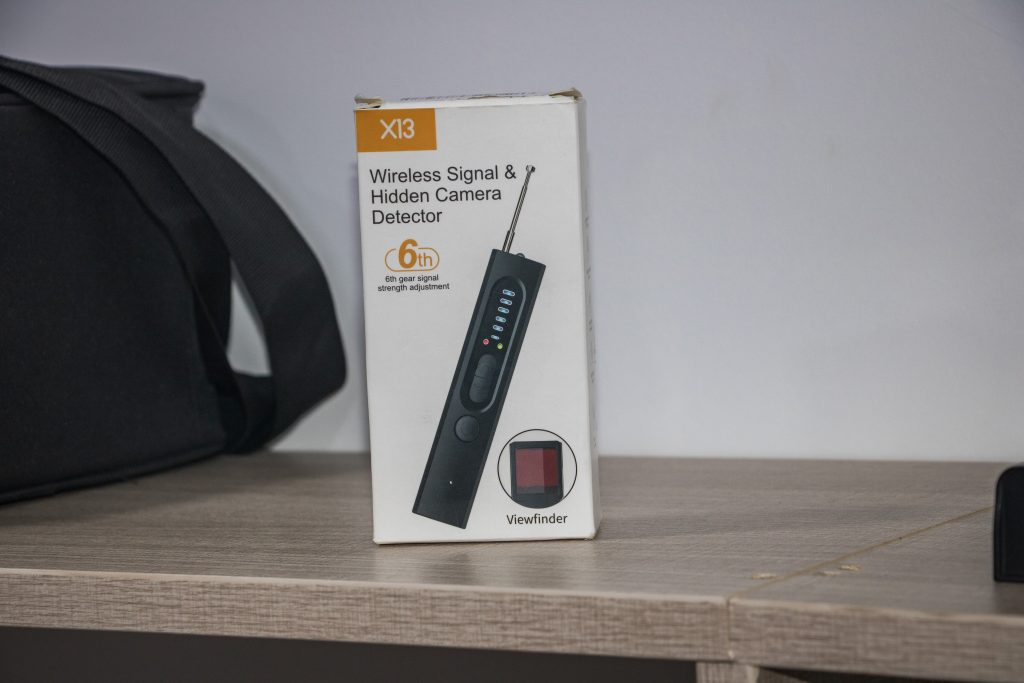

Wisconsin International University College, Ghana takes pride in its Digital Forensics Labs, which are comparable to none in Ghana and even in the broader West African sub-region. These labs exemplify our commitment to providing world-class facilities and training to our students, ensuring they are at the forefront of cybersecurity innovation.
As part of our curriculum, we are very particular about our students getting to know the laws and regulations that govern cyberspace in Ghana. Therefore, we have a course on cyber law that educates them to understand these important aspects. As a result, we encourage our students to register with the cybersecurity authority so that they will be able to acquire the appropriate license to operate. This registration not only makes them employable but also ensures they are fully prepared to meet legal and ethical standards in their professional careers.
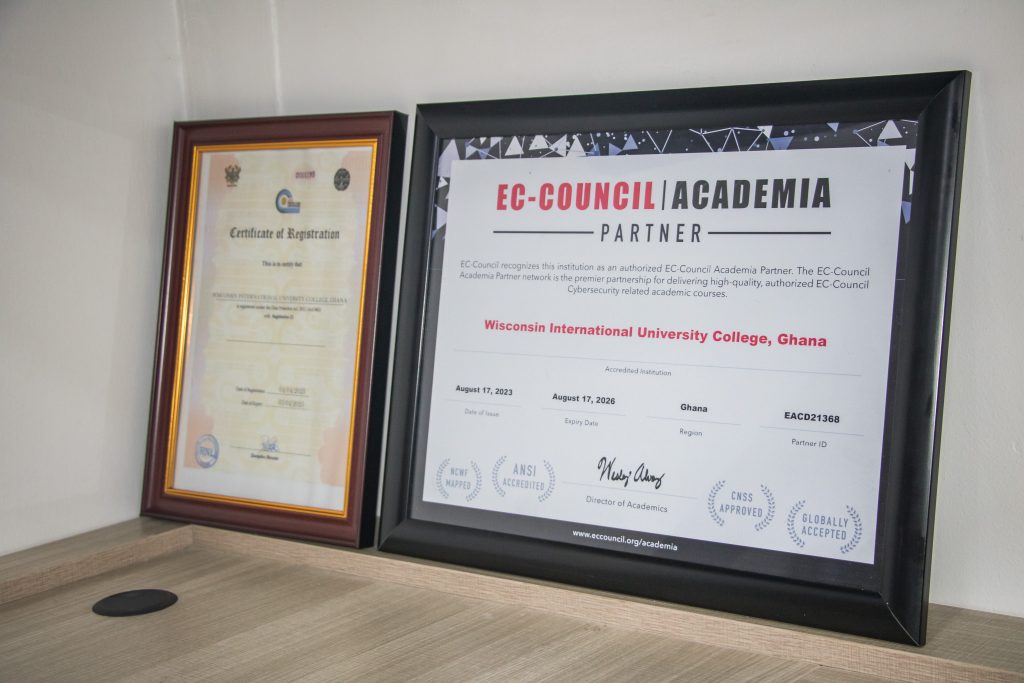
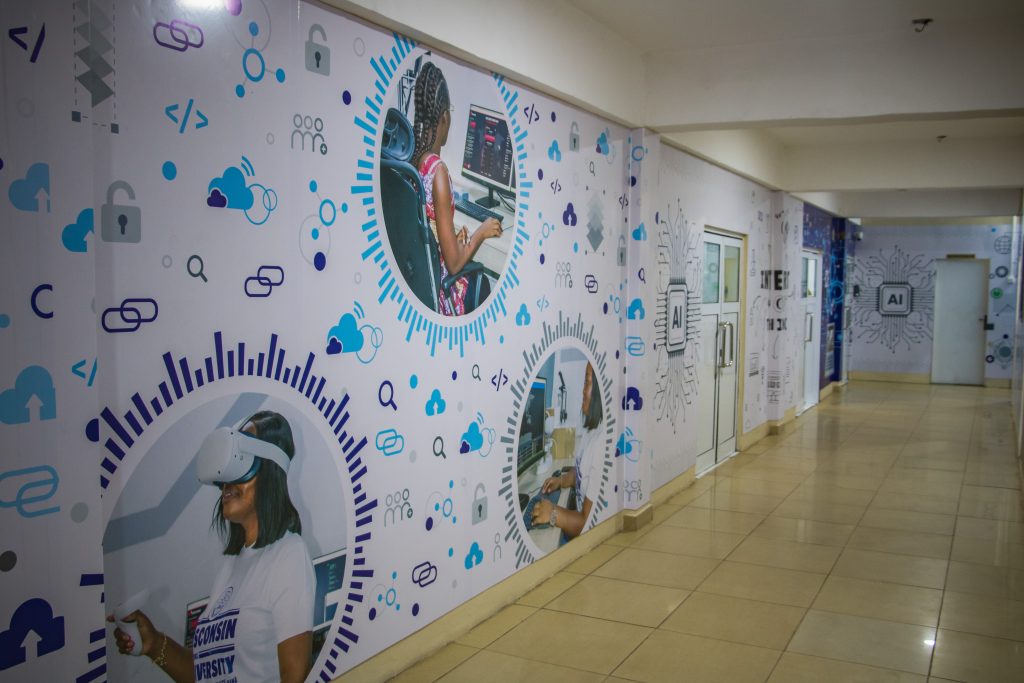
To ensure that our students receive top-notch education and training, we have engaged a distinguished faculty consisting of academics and industry professionals. This diverse faculty brings a wealth of knowledge and practical experience, enriching the learning environment and preparing students for the dynamic challenges of the cybersecurity landscape.
As part of our commitment to fostering excellence in cybersecurity education, we encourage aspiring students seeking higher degrees and professionals aiming to enhance their skills to make Wisconsin International University College, Ghana their preferred choice. Our programs and facilities are tailored to meet the needs of both aspiring cybersecurity professionals and seasoned practitioners looking to stay ahead in this rapidly evolving field.
We have also designed a tailored made program for those who have trained at other universities, where hands-on training might have been insufficient, to also take advantage of our advanced facilities. This initiative ensures that all individuals, regardless of their prior training, can equip themselves with the necessary skills to be market-ready
In conclusion, Wisconsin International University College, Ghana’s initiatives in establishing advanced labs for digital forensics, AI, and IT underscore its dedication to producing industry-ready cybersecurity professionals. These efforts are crucial for supporting Ghana’s digitalization drive and safeguarding against the growing threat of cybercrime.

